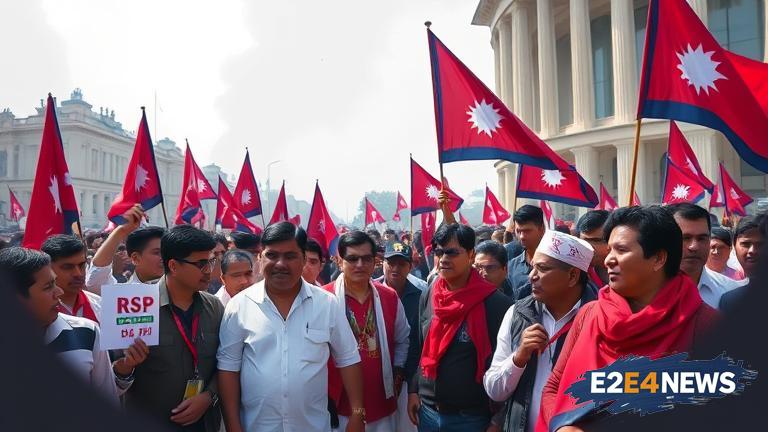The Rastriya Swatantra Party (RSP), a key player in Nepal’s political landscape, has announced its decision to continue protesting in parliament. This move comes amidst ongoing tensions between the government and opposition parties. The RSP has been demanding significant reforms and has expressed dissatisfaction with the current state of affairs. Despite efforts to address their concerns, the party feels that their demands have not been adequately met. As a result, they have chosen to continue their protest, which may lead to further disruptions in parliamentary proceedings. The RSP’s decision is likely to have significant implications for the country’s political stability. Nepal has been experiencing a period of political turmoil, with various parties and factions vying for power. The RSP’s protest is just one aspect of the larger political landscape. The party has been seeking changes to the constitution, as well as reforms to the electoral system. They have also been pushing for greater accountability and transparency within the government. The RSP’s demands are not limited to these issues, however, and they have been seeking a broader overhaul of the political system. The government, on the other hand, has been attempting to address the RSP’s concerns through dialogue and negotiation. However, the party feels that these efforts have been insufficient, leading to their decision to continue protesting. The RSP’s protest has been ongoing for several weeks, with party members staging demonstrations and disruptions within parliament. The situation has been tense, with some clashes between protesters and security personnel. The international community has been watching the situation closely, with some expressing concern over the potential for further instability. Nepal’s political system is characterized by a complex web of alliances and rivalries, making it challenging to predict the outcome of the current situation. The RSP’s decision to continue protesting is likely to have significant repercussions, both domestically and internationally. The party’s leadership has been adamant that they will not back down until their demands are met. The government, meanwhile, has been seeking to find a resolution to the crisis through dialogue and compromise. As the situation continues to unfold, it remains to be seen whether the RSP’s protest will lead to meaningful reforms or further instability. The country’s future hangs in the balance, with the outcome of the current crisis having significant implications for Nepal’s political and economic development. The RSP’s protest is a testament to the ongoing struggles and challenges faced by Nepal’s democratic system. Despite the country’s progress in recent years, significant challenges remain, and the RSP’s protest highlights the need for continued reform and development. The international community will be watching the situation closely, with many hoping for a peaceful and stable resolution to the crisis.
